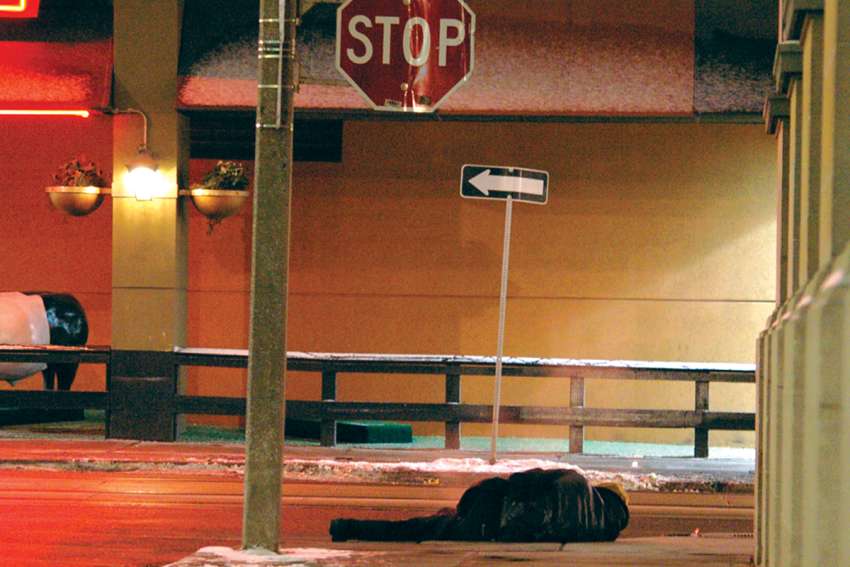Given my work over the years in shelters and with addictions recovery agencies, I couldn’t help but pause and marvel at the infrastructure that was set up to help those most in need. Time and again I encountered individuals at work in a church yard or helping to distribute food on a busy street corner, engaging positively and humanely with those in their care. At one stage an elderly woman waved at me. “How are you doing today, sir?” she asked, and I answered, “Doing well. How about you?” She stopped in her tracks and looked at me confusedly. “Oh. You actually answered. How ’bout that?” And she walked off. The moment reminded me of a workshop I ran in a homeless shelter, where one of my student volunteers asked the resident what the hardest part of being on the street was. “Being invisible,” he answered. “No one sees you.”
One narrative I always hear is how disengaged society is from the poverty in our cities. What this experience proved to me, however, was how many people actually work so hard and so sincerely to “see” and to support the most disadvantaged in our cities. While it has become fashionable for people to attack Christians, it was heartening to see how that community dominates in the hospitality stakes.
So many people giving of their time, in difficult conditions, to lend a hand to those in need. I have often heard people decry the homeless as a blight on the landscape — but the true blight is the fact that so-called “First World” nations allow such poverty and need to proliferate. But it is also a testament to the good heart of so many faith-filled individuals who struggle, despite the lack of support, to ensure some quality of life for those most marginalized.
At a recent talk from our Centre for Christian Engagement here at St. Mark’s College, our keynote speaker, Dr. Ross Lockhart, spoke of the disappearance of traditional church real estate, as congregations dwindle and transform and property is offered up for commercial development. Audience members also spoke about the way so many of the churches were locked during the day, and how that had contributed to a changing dynamic, where the places of worship seemed available only on Sundays or at narrowly scheduled times.
My own experience that day in Toronto, wandering down Church Street as it happened, was certainly that every place of worship I tried to enter was locked. But what occurred to me as I continued on my nearly hour-long wander around the neighbourhood was that sacred spaces aren’t merely found in churches and basilicas. As I met the homeless that day, and watched those supporting broken communities, I realized that here was the sacred at its most critical and dynamic.
Christ walked in the gutters, not the palaces; He blessed the broken, not the rich; and He welcomed the sinner, not the saint. He asked us to express our common humanity by engaging in encounter; by challenging, not celebrating comfort; and by extending a hand to those most in need.
I have to admit that even after two decades of working with the marginalized — in Australia and here in Canada — I was surprised and not a little humbled, to rediscover the sacred in the ordinary; the blessed in the most wounded; and the heroic in the humblest servants. What encounter asks us to imagine is how we might share an experience with another; not to judge but to empathise. Despite my best efforts I found myself wanting, and I hope to do better and to do more to walk with those who need companionship most. To quote from Ephesians, I pledge to “walk in a manner worthy of the calling” to which I have been called (4:1).
(Turcotte is President and Vice-Chancellor at St. Mark’s and Corpus Christi College, University of British Columbia.)


